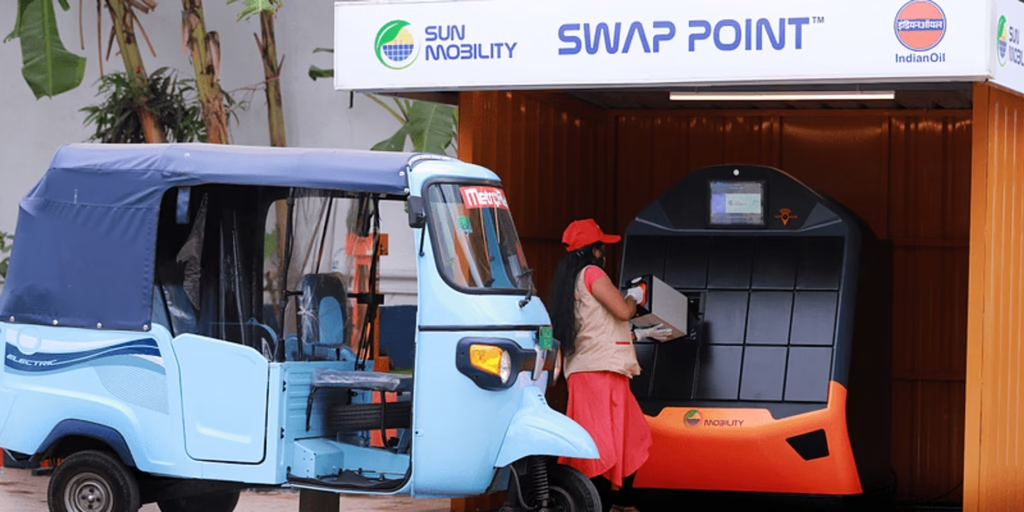Bengaluru’s Metro Stations to Offer EV Battery Swapping: A Commuter’s Dream!
As electric vehicles (EVs) continue to gain traction in India, innovative solutions are emerging to address one of the biggest challenges in EV adoption—charging infrastructure. Battery swapping at metro stations is the latest initiative aimed at making EV ownership more convenient and accessible, particularly in bustling urban centers like Bengaluru.
This forward-thinking approach not only reduces charging time but also integrates seamlessly with public transportation systems, paving the way for a greener and more efficient future.

What is EV Battery Swapping?
Battery swapping is a process where EV users can exchange their depleted battery for a fully charged one at designated swapping stations. Unlike traditional charging, which can take hours, battery swapping takes just a few minutes, making it an ideal solution for busy commuters.
Why Metro Stations are Ideal for Battery Swapping
Metro stations are strategically located in high-traffic areas, making them perfect hubs for EV battery swapping. Here’s why this initiative is a game-changer:
- Convenience for Commuters: EV users can swap their batteries while using the metro, saving time and effort.
- Reduced Range Anxiety: With swapping stations at metro hubs, EV owners no longer need to worry about running out of charge during their daily commute.
- Efficient Use of Space: Metro stations already have the infrastructure to support such facilities, minimizing the need for additional land.
- Boost to EV Adoption: Easy access to battery swapping can encourage more people to switch to electric vehicles.

How Battery Swapping Works at Metro Stations
- Locate a Swapping Station: Users can find the nearest battery swapping station through a mobile app or metro station signage.
- Quick Swap: The depleted battery is removed and replaced with a fully charged one in minutes.
- Pay-as-You-Go: Users are charged based on the energy consumed or a subscription model, making it cost-effective.
Benefits of Battery Swapping for Urban Mobility
- Time-Saving: Swapping is significantly faster than traditional charging.
- Cost-Effective: Reduces the upfront cost of EVs by eliminating the need for permanent battery ownership.
- Eco-Friendly: Encourages the use of renewable energy for charging batteries.
- Scalable: Can be easily expanded to other metro stations and public transport hubs.
Bengaluru Leading the Way
Bengaluru, often referred to as the Silicon Valley of India, is at the forefront of this initiative. With its growing EV ecosystem and extensive metro network, the city is perfectly positioned to implement battery swapping at metro stations. This move aligns with Karnataka’s broader goals of promoting sustainable urban mobility and reducing carbon emissions.
Challenges and the Road Ahead
While the concept of battery swapping is promising, it does come with challenges:
- Standardization: Ensuring compatibility across different EV models.
- Initial Investment: Setting up swapping stations requires significant capital.
- Battery Lifecycle Management: Proper recycling and disposal of used batteries are crucial for environmental sustainability.
Despite these challenges, the benefits far outweigh the drawbacks, making battery swapping a viable solution for India’s urban mobility needs.
A Step Toward a Greener Future
The introduction of EV battery swapping at metro stations is a revolutionary step in India’s journey toward sustainable transportation. By integrating this service with public transit systems, cities like Bengaluru are setting an example for the rest of the country.
As more metro stations adopt this model, EV users can look forward to a future where range anxiety is a thing of the past, and eco-friendly commuting becomes the norm.


